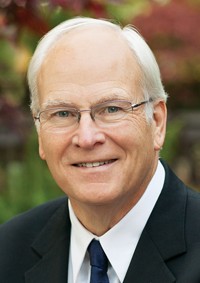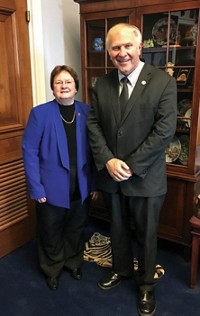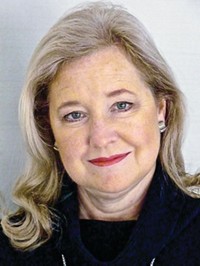Advertisement
Grab your lab coat. Let's get started
Welcome!
Welcome!
Create an account below to get 6 C&EN articles per month, receive newsletters and more - all free.
It seems this is your first time logging in online. Please enter the following information to continue.
As an ACS member you automatically get access to this site. All we need is few more details to create your reading experience.
Not you? Sign in with a different account.
Not you? Sign in with a different account.
ERROR 1
ERROR 1
ERROR 2
ERROR 2
ERROR 2
ERROR 2
ERROR 2
Password and Confirm password must match.
If you have an ACS member number, please enter it here so we can link this account to your membership. (optional)
ERROR 2
ACS values your privacy. By submitting your information, you are gaining access to C&EN and subscribing to our weekly newsletter. We use the information you provide to make your reading experience better, and we will never sell your data to third party members.
ACS News
ACS And Advocacy
by Rudy Baum
August 25, 2008
| A version of this story appeared in
Volume 86, Issue 34
LIKE ALL ACS national meetings, the one held last week in Philadelphia was a smorgasbord, the offerings of which were as broad and diverse as the membership of the society. Beginning with three stories in this week’s News of the Week department, C&EN’s next several issues will be covering the Philadelphia meeting, especially the exciting chemistry presented there.
One interesting session I attended on Tuesday afternoon was the “Task Force on Enhancing Innovation & Competitiveness: A Hearing to Gather Input for the Final Report.” The task force was organized by ACS Immediate Past-President Catherine T. Hunt. It was cochaired by Sherwood L. Boehlert, a former congressman who served on the House Science Committee for his entire 24-year career and chaired the committee for his last six years in office, and Glenn Ruskin, director of the ACS Office of Public Affairs.
As its title implied, the session took the form of a congressional hearing, with the task force members taking the roles of representatives and two panels of witnesses testifying on a series of questions about ACS’s advocacy efforts.
At the opening of the session, Hunt said that “our objective is to produce a report with best practices for involving ACS members in advising Congress on the importance of science and technology for our country’s future.”
The first panel of witnesses consisted of Maureen C. Chan, a chemist retired from Bell Labs who has had numerous governance positions in ACS; Sarah Mullins, a research chemist at 3M and the legislative and government affairs liaison for the Minnesota local section; and Marc A. Walters, a chemistry professor at New York University and chair of the New York local section. The second panel consisted of Jodi Peterson, public affairs director for the National Science Teachers Association; Heath Weems, director of education and workforce policy for the National Association of Manufacturers; and Lynne Bradley, public affairs director for the American Library Association.
The panels discussed a number of practical issues and concerns surrounding advocacy for science and technology, but all agreed that to remain relevant in the public policy arena scientists need to continue to make their voices heard strongly and clearly on Capitol Hill.
Ruskin noted that the task force first met in June 2007 and spent the day discussing ACS policy statements, which form the core of the society’s advocacy efforts. One task force recommendation was to involve more ACS members in addressing science and technology issues. Ruskin said that ACS is actively encouraging its local sections to form government affairs committees (GACs). In June 2007, 59 local sections had GACs, Ruskin said. There are now 73, and the goal is to have 90 by the end of 2008.
Boehlert said that, during his time in the House, “I always valued input from ACS, but we need greater involvement of ACS members. It just can’t be the professionals at ACS. The scientific community needs to be more vocal. Congress hears from everyone else—the line is long. More attention on science is needed on Capitol Hill.”
“We had fun bringing one of the task force recommendations to fruition,” Boehlert said of a training video, “Speaking for Science: Bringing Your Message to Policymakers.” “I’ve had teams of Nobel Laureates come to Capitol Hill, and they may as well have been speaking a different language,” Boehlert said. The training video was filmed entirely on Capitol Hill, and in it, Boehlert narrates and plays his former role, chairman of the House Science Committee.
The video depicts two meetings of constituents with Boehlert. The first, a rather cringe-inducing meeting, involves the fictitious National Association of Chemists and demonstrates how not to conduct such a meeting. The second, a corrected version, involves a delegation from ACS and shows how preparation and coordination can lead to successful communication with a member of Congress.
The video is being mailed to the chairs of all ACS local sections. It can also be accessed online at www.acs.org under the “Policy” tab on the homepage.
Thanks for reading.
Views expressed on this page are those of the author and not necessarily those of ACS.







Join the conversation
Contact the reporter
Submit a Letter to the Editor for publication
Engage with us on Twitter